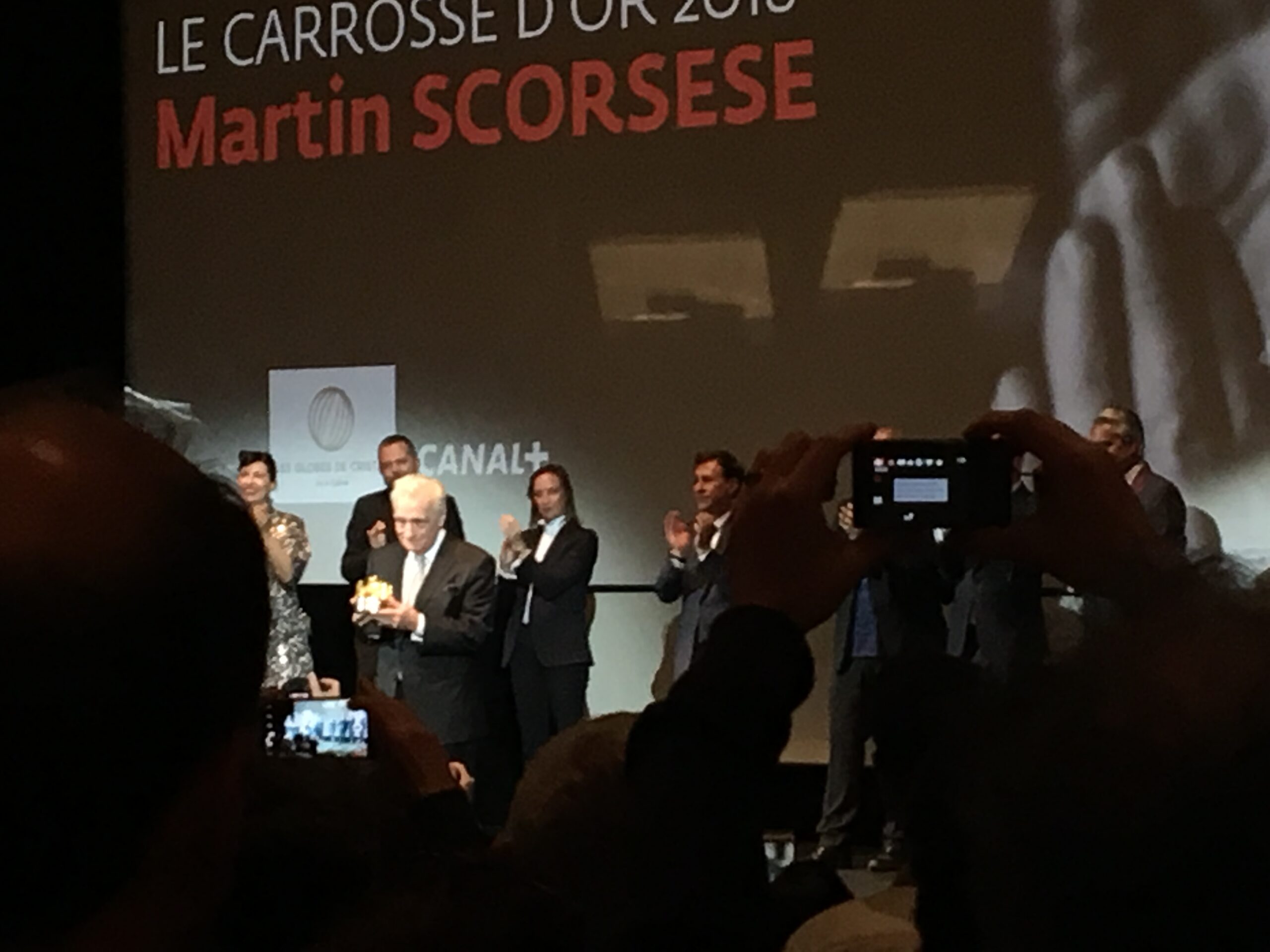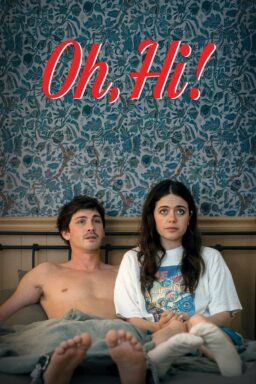Remember when Martin Scorsese was the new kid on the block, struggling to get to get his movies seen? The Directors’ Fortnight, the parallel festival founded in the wake of the May 1968 protests that shut down that year’s Cannes Film Festival, certainly does: In 1974, it screened “Mean Streets,” Scorsese’s third feature. In a wide-ranging 90-minute conversation with four other filmmakers in Cannes on Wednesday, Scorsese credited that platform with launching his international reputation, and also paid tribute to Pierre Rissient, who died on Saturday. A longtime Cannes mover and shaker, Rissient was one of the original champions of “Mean Streets.” (Domestically, another was our own Roger Ebert.)
Between a revival screening of “Mean Streets” and the opening ceremony of the 50th Fortnight, at which the festival honored Scorsese with a prize, the Carrosse d’Or, Scorsese recalled his first Cannes in a discussion with Jacques Audiard (“Dheepan“), Cédric Klapisch (“Back to Burgundy“), Rebecca Zlotowski (“Planetarium“), and Bertrand Bonello (“Noctruama”).
For Scorsese, his first time at Cannes “was almost the best time” because of the anonymity he enjoyed and was trying to change. He noted that it was a period of discovery not just of filmmakers who went on to emerge in the 1970s, but also of neglected filmmakers from the past, like John Auer, who made the 1953 Chicago noir “City That Never Sleeps.” (Scorsese programmed some of Auer’s films in a Republic Pictures retrospective at the Museum of Modern Art earlier this year.)
In his Great Movies essay on “Mean Streets,” Ebert wrote that “for Catholics raised before Vatican II,” the film “has a resonance that it may lack for other audiences.” Indeed, Scorsese spoke of the movie in spiritual and personal terms, framing some of its central questions as “how does one lead a good life, a moral life, in a world that is not?” and “where does obligation”—to each other, to family—”end, if it should, at all”?
He said that it took him years to realize the degree to which the relationship between his father and an uncle, the father’s youngest brother, had colored the movie. As he has in the past, Scorsese spoke of a priest, who died last year, who served as a mentor to him between the ages of 11 and 17. The priest was more of a “street teacher” than a religious one, Scorsese noted, and introduced him to the writing of Graham Greene and Dwight Macdonald.
He also spoke of how the theme posed in the opening words of “Mean Streets”—”You don’t make up for your sins in church. You do it in the streets. You do it at home. All the rest is bullshit and you know it”—has resounded through his other movies. There’s a parallel between “Mean Streets”—and the devotion of Charlie (Harvey Keitel) to the volatile, unreliable Johnny Boy (Robert De Niro)—and “Silence,” in which Kichijiro (Yosuke Kubozuka) keeps apostatizing and nevertheless repeatedly returns to the Jesuit priests, insisting that he wants to live life as a Christian. Scorsese said what he loved about Kichijiro was that “he keeps trying even though he’s a wretch.”
The conversation covered large swaths of Scorsese’s career and approach to filmmaking, from the emotional tumult that he felt during the shooting of “The King of Comedy” to his practice, somewhat relaxed in recent years, of locking himself away before shooting to storyboard entire films for two weeks. (He noted that he’s attuned enough to allow for happy accidents, including the “you talkin’ to me” monologue in “Taxi Driver” and the unscripted “funny, how?” scene from “Goodfellas.”)
Anyone who has heard Scorsese speak before knows to come prepared with a notepad for jotting down films to see, and he didn’t disappoint. He explained how Allan Dwan’s wonderful “The Inside Story” (1948) helped him to puzzle together the plot of “After Hours” and cited a stray moment from a film by the centenarian Portuguese director Manoel de Oliveira. Accepting the Carrosse d’Or, he noted that it was an honor to receive the award in the Fortnight’s 50th year and rattled off a long list of directors whose work had shown there. Some, like Robert Kramer and Gregory Markopoulos, are arguably obscure even among cinephiles.
“Just as meaningfully,” he added, “you’ve given a home to older directors who are still taking chances,” mentioning Jerzy Skolimowski, John Boorman, and William Friedkin, all of whom have had films in the Fortnight since 2006.
“Cinema is such a precious art, and it is always under attack in some way,” Scorsese said, thanking the Fortnight for providing the art form with a “refuge.”
The Fortnight isn’t the only part of the Cannes Film Festival to do that, of course. The Un Certain Regard program provided a refuge on Wednesday for the lesbian love story “Rafiki,” which is not only the first Kenyan film to screen in the festival’s official selection but also banned in Kenya, where engaging in same-sex sexual activity is illegal. Four members of the main competition jury—Cate Blanchett, Ava DuVernay, Khadja Nin, and Léa Seydoux—played hooky from their official duties to attend the evening premiere screening.
“Even though it can’t be shown in Kenya, we can show it to you,” Wanuri Kahiu, the director, said in her introduction. The film is a movingly understated portrait of two young women, Kena (Samantha Mugatsia) and Ziki (Sheila Munyiva), who begin a relationship. Beyond the legal jeopardy they could face, the romance is fraught because their fathers are campaigning against each other for the position of county assemblyman. The film notes the hypocrisy of the other characters: Among other things, Kena’s father, a shopkeeper (Jimmi Gathu) divorced from Kena’s mother, has not informed Kena that he is about to become a father again.
Tender but not explicit, the film excels most in small moments and gestures, like Kena and Ziki’s first date at a local gossip’s soda joint, the women’s testing of the waters (“If we were to do something, just me and you, what would we do?” Ziki asks), or when Ziki has the flagrancy to try holding Kena’s hand during a church service. Discovery for them would mean near-total ostracism from friends and family. Even Kena’s mother, given the rather on-the-nose name of Mercy (Nini Wacera), isn’t sympathetic to the idea that her daughter might be gay.
Movies that become causes aren’t always worthwhile, but “Rafiki,” aided by its excellent lead performers, gets most of its major notes right, avoiding sanctimony and sentimentality.












